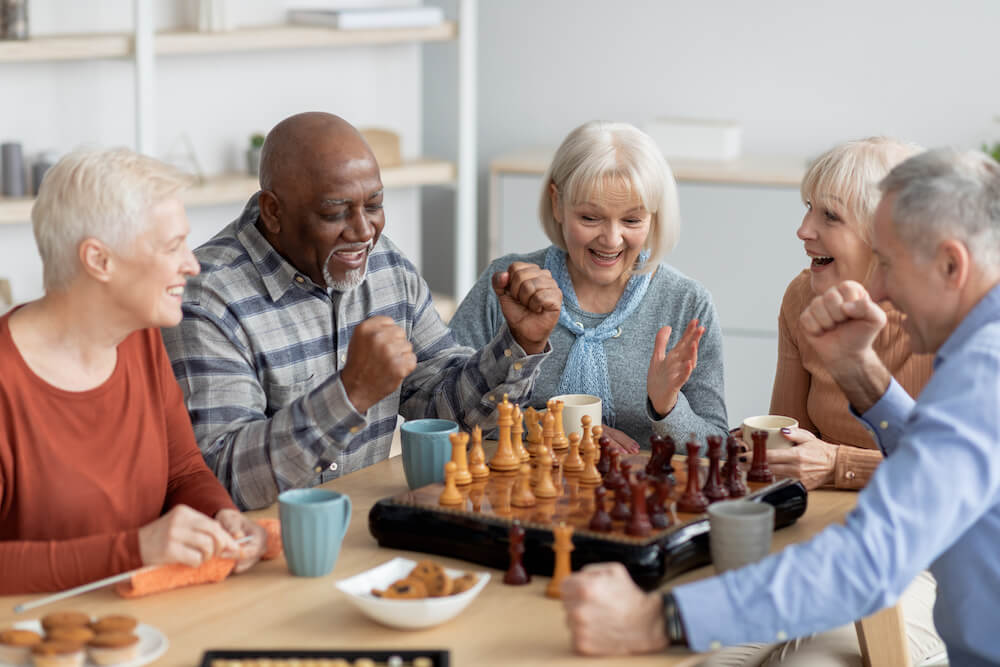The Enduring Importance of Lifelong Learning: Older Individuals Embracing Intellectual Pursuits
The journey of learning doesn’t stop after school; it’s a lifelong adventure. It’s a continuous process that keeps us growing and our minds active, even as we get older.
As people enter middle age and later, they continue to seek knowledge. They take classes, attend workshops, and engage in various educational activities, all of which offer significant benefits for their lives.
In this discussion, we’ll explore the various ways in which pursuing knowledge enriches the lives of older adults.
The Diverse Benefits of Intellectual Engagement for Seniors
Cognitive Enhancement
As people age, they may experience a decline in cognitive abilities. Some accept this as a normal part of getting older, but for others, issues like Alzheimer’s and dementia are a concern.
However, ongoing learning is like a mental workout that sharpens cognitive skills, improves memory, and stimulates the creation of new brain cells. This can help protect against Alzheimer’s and other cognitive issues.
Emotional Resilience
Many older individuals face challenges such as loneliness, declining health, and the loss of loved ones, which can lead to feelings of depression. Engaging in intellectual pursuits can boost their self-esteem, bring positivity into their lives, and serve as a constructive distraction from life’s difficulties.
Building Social Connections
When seniors participate in intellectual activities like classes and workshops, they have the opportunity to meet others who share their interests. This not only enriches their intellectual lives but also helps them form lasting friendships.
Promoting Physical Activity
Maintaining physical health is crucial for seniors. It helps them manage their weight, keeps their hearts healthy, and reduces the risk of illness. Some forms of intellectual engagement, like gardening or dancing, also encourage physical activity, benefiting both their bodies and minds.
Stress Reduction
Even simple intellectual activities like playing a musical instrument or reading can lower stress levels and relax tense muscles. This equips seniors to cope with challenging situations in a calmer way.

What Learning Activities Are Recommended for Seniors?
Travel
Traveling offers a great opportunity to learn about different cultures and history. It also requires planning and critical thinking, which can be good for the brain. Additionally, it involves physical activity as seniors explore new places.
Continuing Education Programs
Many colleges offer special courses designed for older adults. These classes allow seniors to explore subjects they’re interested in, and they can even earn degrees or certificates.
Learning a New Language
Learning a new language is an excellent way to keep the mind sharp. It enhances focus, memory, and intelligence and can help prevent cognitive decline.
Reading
Reading books, whether fiction or non-fiction, provides an enriching intellectual experience. It expands horizons and offers an escape from life’s challenges. Seniors can also make reading a social activity by joining book clubs.
Dancing
Dancing is not only fun but also beneficial for seniors’ physical health. It strengthens bones, improves balance, and keeps them physically fit. Remembering dance steps also sharpens memory and cognitive abilities, and there are online dance classes tailored to seniors.

Playing Music
Playing a musical instrument is enjoyable and has health benefits. It boosts self-esteem, reduces heart rate and blood pressure, and stimulates the brain’s memory functions.
Painting
Engaging in painting is an excellent way to keep the mind active. It requires concentration and encourages creative patterns. It may even slow down the progression of Alzheimer’s and dementia, while also reducing stress and enhancing coordination.
Gardening
Gardening is a wonderful form of physical activity that allows seniors to enjoy beautiful flowers and fresh produce. Recent research even suggests that gardening can promote the growth of brain nerves in seniors aged 76 and older.
Intellectual Challenges: Brain Games and Puzzles
Brain games and puzzles provide seniors with opportunities to exercise their problem-solving and critical-thinking skills. Jigsaw puzzles, in particular, engage both sides of the brain, enhancing logical and creative abilities. These activities improve short-term memory, mood, and concentration.
Culinary Skills
Cooking is another way to boost cognition in multiple ways. Following recipes requires attention and working memory, and it enhances sensory memory by improving the ability to recall different flavors. It’s also beneficial for motor skills and teaches seniors how to prepare healthy meals.






